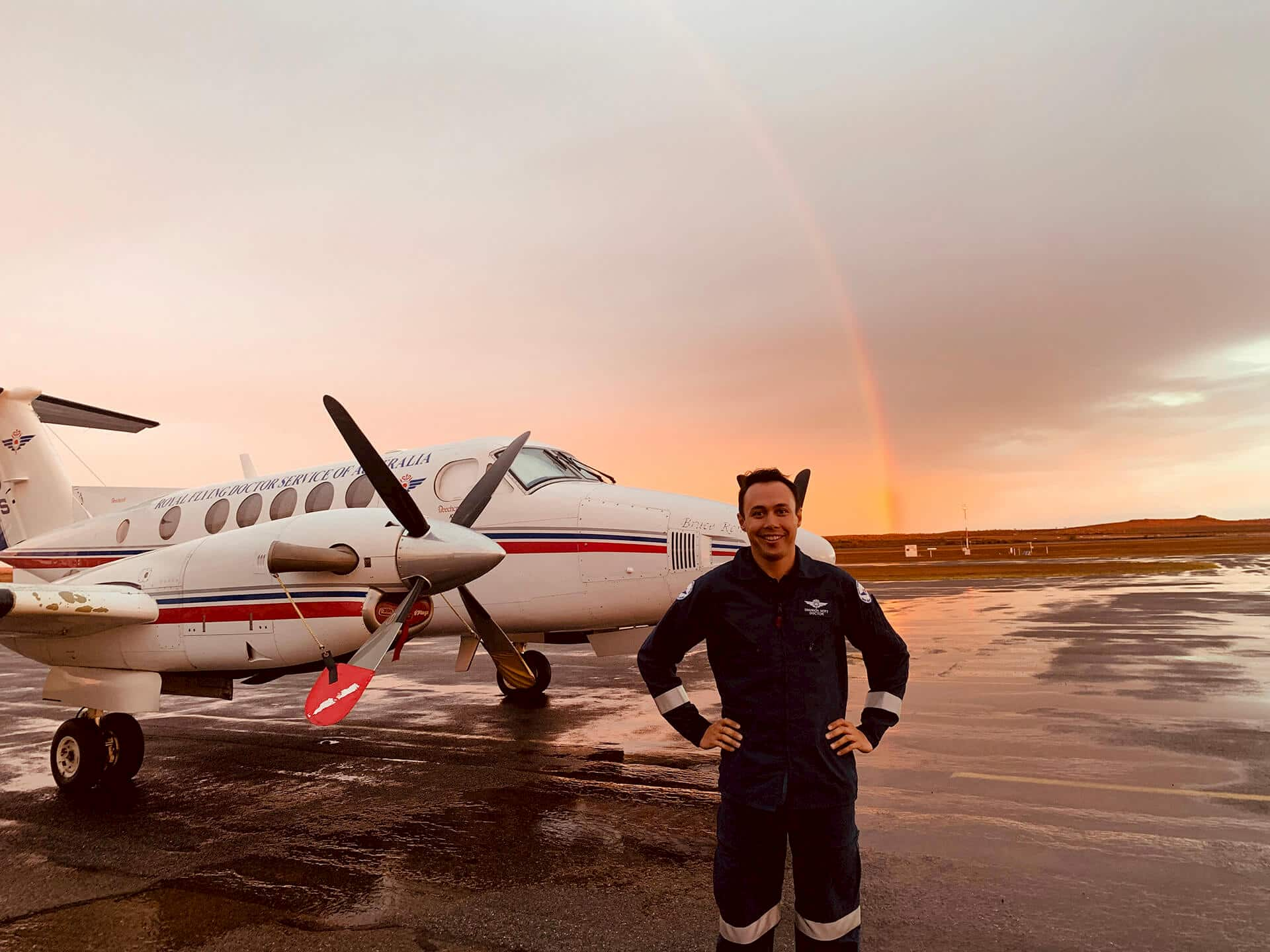He is currently the Rural Director of Medical Services for the Western NSW local health district where he oversees the medical and clinical management of 35 rural and remote hospitals. He also works doing primary care and retrieval with the Royal Flying Doctors Service (RFDS) and provides General Practice Anaesthetics to the Dubbo community.
His passion for rural and remote healthcare has seen him win numerous prestigious awards including Australian Medical Student of the Year, NSW Finalist for Young Australian of the Year, and runner-up for AMA’s Junior Doctor of the Year.
In 2014, Shannon was awarded a prestigious Churchill Fellowship, an opportunity that allowed him to travel to Canada, Alaska and Brazil to research the role of telehealth in delivering care to remote Indigenous communities.
He is currently training on ACRRM’s Independent Pathway to Fellowship.
What inspired you to pursue a career as a rural GP?
I get to work in some of the most interesting areas in the country. The way I work at the moment allows me to do retrieval with the RFDS in the Simpson Desert one week, and the next I can be in Sydney in meetings with the Ministry discussing how we can improve our rural medical workforce. That to me is true medicine; you span a whole variety of areas to make a real difference on the ground but also have the capacity to be an advocate for your community in a broader capacity.
I truly believe I’ve gained so much more in my career by searching out rural and remote work. For those purists of medicine, there is nothing more magical than having to rely on your clinical acumen to diagnose, manage and treat patients in remote settings where you don’t have the luxury of MRIs, a pathology service on your doorstep or a barrage of sub-specialists next door. It can be confronting for some, but the learnings are immeasurable.
Even in more resourced facilities, you can find yourself with a wealth of support and knowledge from mentors and supervisors who have often spent a lifetime working broadly in their chosen field. If you turn up, have a positive attitude and contribute to your team and community, these mentors will often be your biggest supporters through your career and will be just as passionate as you are in ensuring you have a successful and fulfilling path through medicine.
Why did you choose to train on ACRRM’s Independent Pathway?
The flexibility the Independent Pathway provides allows me to work in a way that supports the true Rural Generalist. I think the Independent Pathway is better at recognising the different roles that Rural Generalists can play, which I don’t think is as well understood in other training pathways. I’ve also found that dealing with the College directly is better for me as they provide the support I need to get through the exams and the training requirements.
Providing independent training allows you to ‘choose your own adventure’ so to speak. It allows you to work the way you want to and train in an environment that supports you to become the type of doctor you want to be. Rural medicine is an open-ended book and you can choose what avenues and what areas you have interests in and build your career around that. Formalised training programs don’t really allow you to that whereas the Independent Pathway does, so I definitely recommend it. Plus now that there is financial support through the Non-VR program, there’s no better time.
What are some things you might normally do in a day/week as a Rural Generalist?
There really is no normal week for me as every week is so different depending on what I’m doing. Looking at an average over the year, I guess I spend half the week doing strategic development for rural and remote hospitals, I’d spend a day doing GP anaesthetics in Dubbo, another day doing retrieval and another I would be doing primary care clinics in remote outback communities.
What are the highlights of your career so far?
I think one of my highlights is what I am doing in my role now. I’m designing what a virtual health service looks like for rural western NSW and how we can support clinicians who work in these rural and remote environments with technology. At the same time, I can be flying around doing retrievals and being one of those remote clinicians myself. For me, it’s really great to have a view of the rural health system and be on the ground to live and breathe it myself first hand. I think I’m really lucky as a Rural Generalist that I can have a foot in both worlds.
What do you hope to do in the future?
I definitely see myself always working rurally and having an impact of rural and remote healthcare, but the main thing for me is to work out my work-life balance. I want to continue doing the work that I love, but also making sure I have time to focus on family and friends. I have an amazing four-month-old daughter, Darcy, who I can’t wait to share in many rural and remote adventures to come!
Do you have any tips for medical students and junior doctors who are thinking about choosing a career in rural medicine?
My advice would be to immerse yourself in different rural environments and get as much experience as you can because the breadth and scope of work for Rural Generalists really is dependent on an individual. So, if you’re considering a career in rural medicine – do it, you won’t be disappointed.
Shannon is a current GP registrar training on ACRRM’s Independent Pathway to Fellowship. For more information on ACRRM’s pathways, visit our website.
Parts of this article were originally published and approved to share via the AMA NSW website.
Photos of Dr Shannon Nott






